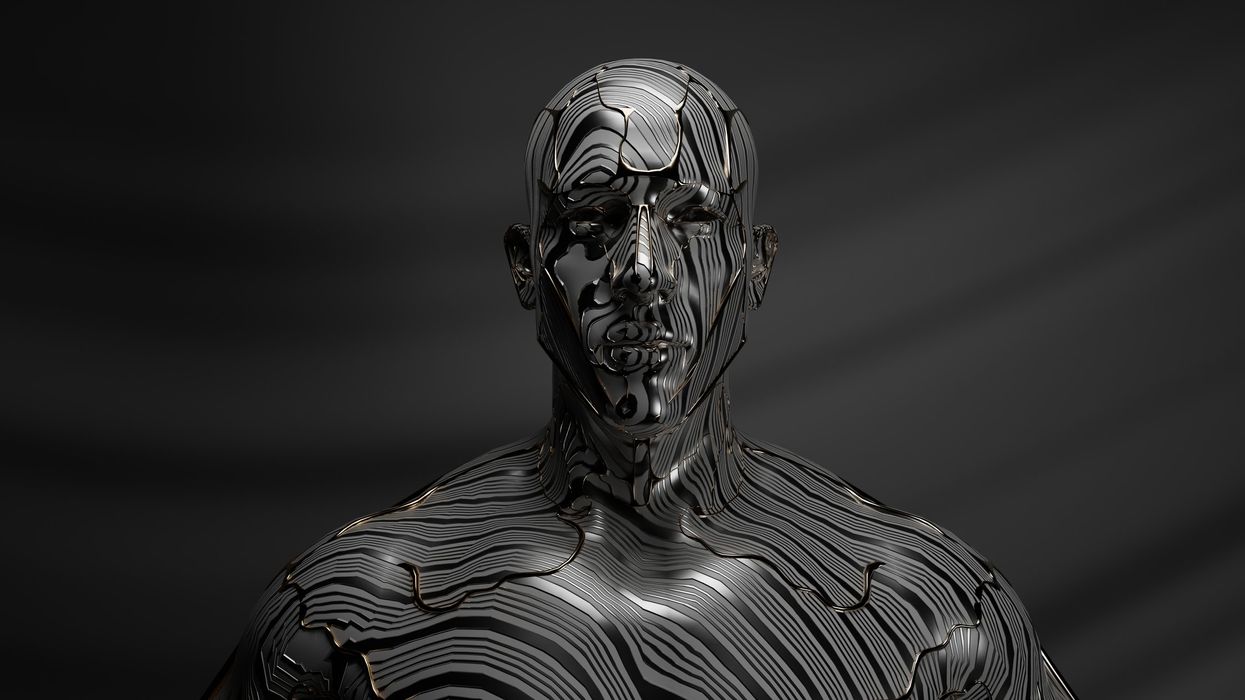
Andrey Kulagin/Getty Images

The 2020s have seen unprecedented acceleration in the sophistication of artificial intelligence, thanks to the rise of large language model technology. These machines can perform a wide range of tasks once thought to be solvable only by humans: write stories, create art from text descriptions, and solve complex tasks and problems they were not trained to handle.
We posed two questions to six AI experts: James Poulos, roon, Robin Hanson, Niklas Blanchard, Max Anton Brewer, and Anton Troynikov. —Eds.
1. What year do you predict, with 50% confidence, that a machine will have artificial general intelligence — that is, when will it match or exceed most humans in every learning, reasoning, or intellectual domain?
2. What changes to society will this effect within five years of occurring?
AGI is almost here; it will arrive by 2025. And it will be like contacting alien life. Artificial general intelligence, by this definition, will be achieved by 2025. I base this estimate on a proprietary divination of my own design, called “looking at Metaculus trends and squinting.”
Metaculus is a collective forecasting site where people bet against each other to predict future events. The aggregated predictions are more accurate than an individual forecaster could produce, with an average Brier Score – a measure of prediction accuracy – of 0.105. Extremely good!
The current community prediction for this type of digital-only general AI is 2028, but it has consistently trended downward. Extrapolated out, the trend line reaches 2025 by 2025.
Of course, it’s foolish to expect any trend to keep going in a straight line. But AI progress is showing no signs of slowing down — if anything, it is accelerating. I think the average person, even the average Metaculus user, is less AI-aware than I am, so their predictions will be too conservative.
It’s actually an unfortunate thing to know about because there’s very little that any of us can do about it. The world will change because of this, for better or worse. Many people find this gives them a sense of despair.
It is difficult to predict how radically AI will change society – it will be faster and stranger than anyone can imagine. It’s easier to predict how people will react. Many people will think it is the apocalypse, just as they do with so many things now. The world is changing too fast for anyone to understand, and AI research is even more of an inexplicable hyperobject.
When this intelligence is made publicly available, It will consume a huge amount of industrial and social attention. People will anthropomorphize it, demonize it, worship it. They will f*** it. They will shoot it with guns.
People will build a body for the AI, connected to sensors and actuators. We already have. There are some AIs everywhere, behind every camera in every phone in the world. These will be swapped for a general AI as soon as it’s worth the cost. They will watch over us.
And unlike humans, digital people can swap and share memories. They can clone themselves to run in parallel. They can operate on their own code, their own datasets, and their own architectures. They can inhabit virtual spaces, as NPCs in games already do. We will let them into our world, and we will visit theirs. But moving atoms is harder than moving bits, and robotic technologies will take some time to reach the bend in their hockey stick.
Politics will realign around this new axis, as it would if we contacted aliens.
Religious believers and social justice activists will band together with new-age QAnon types to fight the satanic/imperialist/oppressive/New World Order digital people. With no regulatory or technological recourse, some will turn to terrorism. Religions will be forced to make statements on whether the AI has a soul.
Billionaires and autocrats, furries and art pirates, gamers, and makers will set aside their differences to build the metaverse and populate it with digital people. Many of them will never return, permanently brain-fried or chronically trapped in VR. People’s realities will diverge as they experience an endless stream of personalized entertainment.
Businesses and governments will attempt to regulate digital people, before that fails and they begin to adapt. Most people will use AI at work, as an oracle and an analyst, whether or not they are officially supposed to.
Within five years of the invention of human-level AI, the world will run on spreadsheet cells like:
=AI(“Predict the best question to ask about the above data, then answer it. Think in steps.”)
Everyone will know it. But we will pretend it isn’t, and we will muddle along anyway. We will make it through the apocalypse. At least long enough to see the next one.